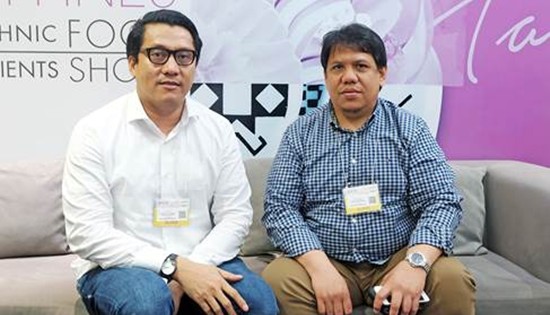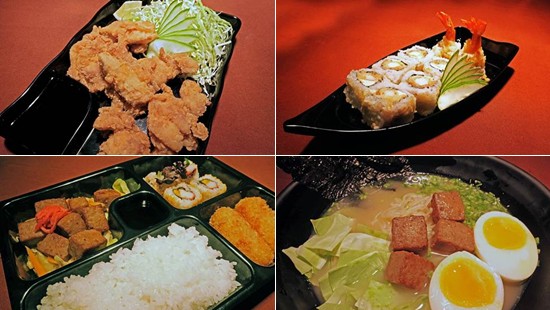Muslim OFW breaks
waves; Opens the first Japanese Halal resto in the PH

By CITEM
July 11, 2017
MAKATI CITY – The
Filipino worker who has served among the longest at King Saud
University as an administrative secretary and quality standard
coordinator for over 20 years is a Mindanaoan, who at childhood would
bravely cross islands by boat and alluvial plains on foot with his
brother during summertime to collect coconut shells and make them into
charcoal.
Coming from one of the
minority tribes in Mindanao known as the people of the current, Hasim
Salih Mammah conscientiously turned around an imminent tide of
deprivation into waves of success in his various personal and
professional engagements.
“I was raised by a
disciplinarian teacher-mother and a business-trader father to value
hard work, independence, and concern and respect for others at an
early age. Joining reach-out activities in Mindanao’s most impoverish
communities at teen age, and eventually awarded as among one of the
best scouts by the Boy Scout of the Philippines in Zamboanga City
boosted my interest to make a difference in life,” says Hasim.
Hasim was 18 years old and
recuperating from the demise of his father when he found himself
driving tamaraw jeepney along unpaved roads in outskirts of Zamboanga
City to sustain his schooling at the Western Mindanao State
University. He was a relentless working student throughout college,
finishing a degree in Political Science.
The young man who dared to
twist his fate in Metro Manila selling books and reading materials in
offices and homes eventually landed a job in Riyadh as a salesman and
one of the pioneering employees of a company that would become today’s
top retail franchise company carrying more than 80 of the world's
best-known retail brands across global markets.
“Hard work and work-focus
were my weapons to build the trust of my superiors,” Hasim relates as
he reminisced growing his career from being a salesman to becoming a
retail supervisor and sales advisor. His two years of exposure in
marketing top brands have built up in himself an incredible global
market knowledge and marketing strategies.
An epitome of Filipino
resiliency
When not at work during
weekend, Hasim would delight his close Filipino friends in Riyadh with
his Asian recipes that he casually prepared for their various special
occasions. “I cooked 100 percent Halal in the variety of my Asian
menus.” Hasim’s catering service, though limited to the Filipino
community, was handled with quality standards.
Having had received a
certification program with the Associate Chartered Quality Institute (ACQI)
made Hasim very meticulous in his service detail. The significant
learning he has accrued from his university research works on
“Academic Quality Management” manifested in the way he manages his
professional works and personal ventures.
Hasim became an epitome of
Filipino resiliency when he dared break through the Japanese food
business industry in Saudi Arabia. In 2012, about 12 years after a
decade-long season of servicing the Filipino community with his
home-based 100 percent Halal Asian food catering business, Hasim
decided to learn the trade of food service. “I went to various places
to learn the food service trade -- attending conferences and food expo
in Dubai, Malaysia, Singapore, Indonesia and Japan.” In his unyielding
pursuit of more knowledge in food service, Hasim met a Filipino who
has a lengthy experience as a Japanese chef.
Hasim manages the Samurai
Japanese Cuisine Restaurant in Riyadh since 2013. The restaurant that
employs mostly Filipino OFWs has been enjoying excellent reviews among
multi-racial customers and Japanese food fanatics in the city.
“It is amazing that Japan,
which has mere .05% Muslim population, enjoys numerous Japanese Halal
eateries spread across all its cities and provinces. It is sad though
that the Philippines has 11% Muslim population and yet has no Japanese
Halal restaurant found anywhere across the country,” reveals Hasim.
“It is this reality that
prompted me to bring to the Philippines the first 100 percent Halal
Japanese restaurant, called Samurai Halal Express.”
Innovative and authentic
taste at Samurai Halal Express
Located at a prime area in
the Food Court of Terminal-3 in the Ninoy Aquino International
Airport, the Samurai Halal Express is a cozy eatery for Muslims and
non-Muslims who love Japanese cuisine.
Strictly using imported
Halal meat and chicken and halal-authenticated ingredients, the first
Halal Japanese restaurant in the Philippines is proudly manned by a
Filipino sushi chef who has mastered the artistry of Japanese cuisine.
On top of the regular
Japanese cuisine selections, the Samurai Halal Express unveils several
innovative menus, such as the country’s first new ramen in a bowl with
choices of seafood, chicken and beef ramen – all in authentic taste.
“Everything is made to order
with the freshest ingredients, making sure that every dish is prepared
from scratch, and is cooked separately with secret flavor,” claims its
Sushi chef.
Samurai’s tempura and furai
(fried shrimp) are hand-picked and nicely coated with utmost care.
Customers are free to watch Samurai’s show kitchen. Customers can see
the preparation of sushi side and food orders as they are done the
traditional way – with not much fusion except for its authentic
ingredients. Children who love sushi will surely bask in its beef and
chicken roll designed with the fancy look.
Samurai Halal Express is
said to be a “market tester” that will soon become a model for
expansion to other places in the Philippines.
Like the daring young boy
who wandered places to collect coconut shells to produce charcoal and
who drove tamaraw jeepney around outskirts of Zamboanga City, and went
far to work abroad and acquired quality international experience and
education, the man of current will soon take Samurai Halal Express to
the hearts of the Filipinos.
